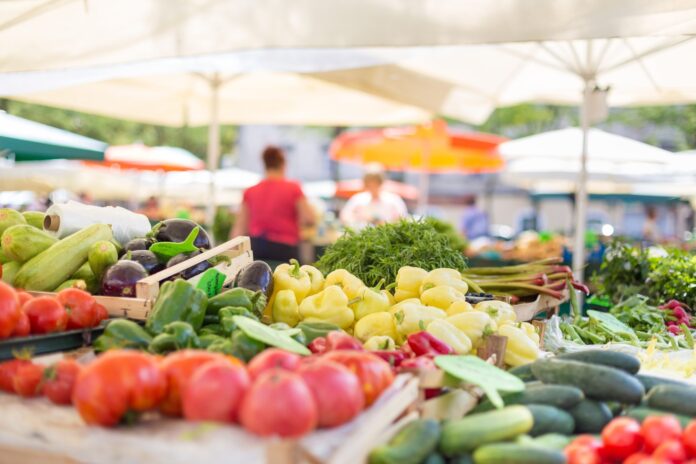| AUBURN UNIVERSITY, Ala. – With Alabama’s growing season in full swing, produce growers are working to ensure continuing food safety during the COVID-19 pandemic. The CDC, USDA and FDA agree that there is no indication the virus can infect consumers through food or food packaging.
Good agricultural practices
Alabama Extension food safety regional extension agent Kristin Woods said the produce industry uses Good Agricultural Practices (GAP) and Good Manufacturing Practices (GMP) to help protect against foodborne illness.
Woods said that many growers go through voluntary audits to verify that fruits and vegetables are produced, packed, handled and stored as safely as possible to minimize risks of microbial food safety hazards.
“Food system workers—including harvesters, packers, processing line workers and others—are critical to a safe and consistent food supply in the U.S.,” Woods said. “In fact, a Department of Homeland Security issued guidance recognized agricultural production, food processing, distribution, retail and food service as well as allied industries workers as essential workers.”
Health of agricultural workers
Woods said worker health is crucial to a stable supply.
“Farms already have food safety protocols in place to preserve the safety of freshly harvested products, but now there are also enhanced procedures to protect employees from the virus,” she said. “These procedures protect workers during harvest and in packinghouses so that producers can keep food flowing from farm to table.”
Woods said consumers should know some key facts about the produce industry.
- Food system workers are highly trained. These workers undergo extensive training to prevent the hazards that cause foodborne illness. They have the knowledge to assess risks on the farm, during processing, at retail and in the kitchen.
- If a worker tests positive for COVID-19, they go home. Individuals who come in contact with an infected person should self-quarantine.
- Processing facilities have enhanced procedures to frequently clean and sanitize high-traffic surfaces. This virus, like others, can survive on surfaces for an extended time making cleaning and sanitizing vital.
- There is no food shortage in the U.S. Shoppers may see empty grocery store shelves in the short-term. However, many packinghouses are shifting gears from food service accounts to retail accounts. This switch takes time to see on the grocery store shelf.
Woods encourages shoppers to exercise patience instead of stockpiling.
“Shifting our food supply from foodservice to retail in a short amount of time is not an easy job,” she said.
Produce safety
While Woods emphasizes the importance of purchasing and consuming Alabama-grown produce, she reminds consumers that because this virus does not appear to be foodborne, imported produce remains safe.
“That’s especially good news for people who like tropical fruits including pineapples, bananas and papayas,” Woods said.
Woods said using basic hygiene practices can curb the spread of the virus and other germs.
“Washing hands before and after a grocery trip, social distancing from other shoppers, covering coughs and sneezes or staying at home when feeling unwell help reduce the spread of the coronavirus,” she said.
Farmers market shoppers may notice new packaging or rules as they begin shopping for produce this year.
Vendors will expect shoppers to shop safely. Take advantage of any opportunity to wash or sanitize hands. Also try to avoid picking up produce to inspect it before purchasing.
“If it is possible to pay in advance, use a credit card or use Apple Pay—do it,” Woods said.
More information
More information on food safety at the farmers market are in the Alabama Extension Food Safety at the Farmers Market Video Series.
Find more information on all aspects of food safety on the Alabama Extension website, www.aces.edu. |




















